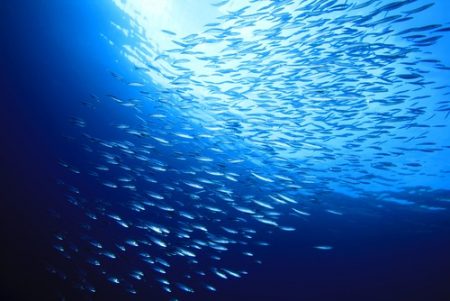July 12, 2017 – Welcome to Casea Peterson, a freelance copywriter and content marketing specialist for businesses in outdoor industries. She has been writing personally and professionally since 2009, but when she doesn’t have her pen in hand she can be found somewhere in the woods hiking, hunting, or exploring the Pacific Northwest. This is her first guest posting here at 21st Century Tech blog. Please let us know your comments.
What goes on under the surface of the water has always been a mystery not only in a scientific sense but also as a generalized collection of data available to the public. The innermost workings of our underwater world play a huge role in what goes on above the surface.
Sonar technology was first created to give ships a means to visually navigate and detect objects under the surface using a combination of simultaneous pulses of sound and corresponding echoes as opposed to only listening for external sounds of nearby underwater objects. Now that sonar has progressed far enough to offer vast insight into the biological composition of unmapped bodies of water, humanity can benefit from this knowledge.
Advancements and Capabilities
In recent years, sonar technology has incorporated GPS and the Navico Operating System. These two additional tools make exploring bodies of water easier than ever before. Other enhancements include radar, Automatic Identification Systems (AIS), realtime weather, integrated audio and advanced imaging using a wide selection of screen sizes. Many sonar GPS units come preloaded with data covering popular bodies of water all over the United States and Canada so users have instant visual access without having to do mapping on their own.
Sonar GPS combos are powerful pieces of equipment. The technology not only provides a biological map but also a detailed physical one, unlocking many of the secrets lying beneath the water surface. Equipped with Sonar GPS explorers can map out much more than the water depth and temperature/ They can also get an accurate picture of the entire water column from the surface to sea and lake floor looking at multiple biological factors and receiving a variety of visual displays of the findings. From mineral capacity and water chemistry to identifying unexplained pockets of cool water far beneath the surface. and the finding of new underwater currents this is technology that goes far beyond finding out where the local fish are hanging out.
The Future of Underwater Exploration
Imagine the possibilities that come with being able to discover and dissect underwater landscapes from lakes to the deep ocean using not only surface vessels but also deep diving drones and underwater robots. It means fewer secrets and a better understanding of our water world. It’s no longer technology to find shipwrecks or fish populations. Now it can help to locate and identify rare, mystifying creatures never seen before. And it can give us a vast new level of knowledge about lake and ocean chemistry as well as the topography of previously uncharted places beneath the sea. The accumulated knowledge includes new data on underlying deep ocean currents, circulation within the water column, carbon trap capacity, and the location and biodiversity of hydrothermal vents is greatly impacting our understanding. We now have the ability in real-time to monitor the changes in the ocean that have a corollary impact on climate and ecosystems above the ocean.
The ocean is the largest carbon sink on the planet. Almost a third of human-generated carbon dioxide gets absorbed by seawater. Investigating the impact of atmospheric carbon and the role the ocean plays in overall climate will help us mitigate and adapt to the changes. The technology being deployed to achieve this includes a variety of underwater sensors and beacons which track changes in water climate and provide vast amounts of new information creating an accurate picture of the planet’s health. And it is this technology focused on underwater discovery that is leading to a better understanding of our water world”s health.









